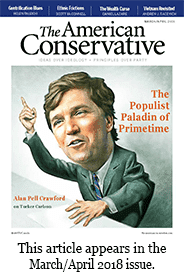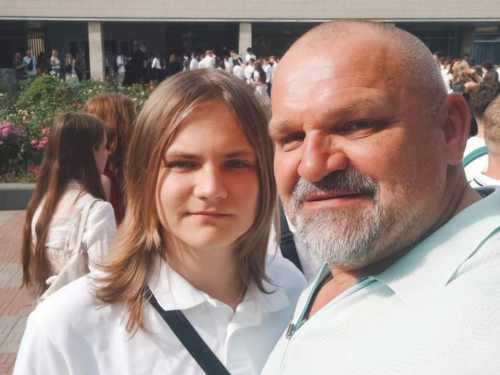
I met Carlos at the Xerox machine, which is odd, since he was absolutely unduplicable. We were two of the six research assistants Senator Moynihan hired each year. We had little in common yet became the bosomest of buddies. He was a Puerto Rican kid from the Bronx who had scored off the charts on the standardized tests given to public school tots, whereupon he had been funneled into various private schools, concluding with Harvard. He and I broke into our personnel files one night and found a letter from some Harvard eminence—James Q. Wilson?—calling Carlos the most brilliant student he had ever taught.
Carlos had a Menckenian vocabulary, which he deployed with effortless and often hilarious ease. He read philosophy incessantly; his favorite was Nietzsche, always Nietzsche. He wore black and white or white and black, nothing else. Our musical tastes were antithetical: regional punk versus smooth disco, so we compromised on nondescript bars with cheap beer. We’d stagger home in middlenight with my roommate Bob and make drunken crank calls to the massage parlors of D.C. (This was before caller ID ruined phone fun.)
Ah, the salad days.

Carlos found the self-importance of senatorial personages and their flunkies vastly amusing. I recall one Puffed-Up Washingtron in a neighboring office boasting to a semicircle of young women that he’d just been promoted to deputy counsel of the Subcommittee on Civil Service, Post Office, and General Services, or somesuch dreariness.
“It’s a start,” shrugged Carlos encouragingly.
Carlos scorned such petty striving. His ambition, he said, was to be a security guard at a drowsy and isolated factory, where he could read all night and not be bothered. Like Melville’s Bartleby the Scrivener, he preferred not to do things. If asked about his political or philosophical views, he replied, cheerily, “Nihilist.”
He despised Capitol Hill culture and bailed out as soon as he could, landing not in a security guard’s chair but rather as an assistant to ex-President Nixon. His job was to listen to the tapes, then in possession of the National Archives, and recommend which material should be released and which Nixon’s attorneys should fight to keep under wraps.
“Nixon?” we asked. But Carlos was happy. He liked the tape-listening solitude, and he liked Nixon, especially his awkward attempts at humor. He said that when he would sit down with his boss to go over the transcriptions, Nixon would ask him, with what I imagine was a twinkle in his eye, “Uh, Carlos, can I get you anything: Coffee…tea….drugs?”
I’ve been soft on Tricky Dick ever since.
The last time I saw Carlos he was helping Lucine and me load the U-Haul for our voyage of repatriation. He moaned all the while about a sore back, but he’d have helped us break rocks in the hot sun if we’d asked him. Neither of us was the lachrymose sort, but we each had a tear in our eye as we said goodbye.
We fell out of touch. The last I heard from ’Los was a Christmas card in which he had scrawled a sweet message of friendship—no sardonic twist. A couple of us tried to track him down over the years, with no luck. Finally, I asked a friend who is part of the presidential library network if he knew any of the Nixon folks. He did. He reported back almost immediately:
“I’m sorry to say that your friend took his own life.”
The how and where were carbon monoxide in his parents’ garage. (Carlos was so mechanically maladroit I’m amazed he figured out how to do it.) As for the why….
I was curious if he had left a note; I suppose I’ll never know. There was speculation that he was distraught over a failed relationship, though I doubt that. He always regretted the pain he caused the women who flipped for him, but, well, not that much.
On occasion Carlos used to ask me—a Pollyanna, he thought—to give him “one good reason why I shouldn’t kill myself.” I assumed he was joking. I guess I never gave him a good reason.
His folks, I understand, returned to Puerto Rico. I thought about contacting them, but their pain must have been so limitless, so ceaseless and all-encompassing, that I let them alone. I dedicated a book to Carlos—coincidentally, it included a chapter on Puerto Rican independence, a subject about which he could not have cared less.
Twenty years have passed since his death. To this day, when I see certain words—calumny, loathe—I hear his mockingly drawn-out pronunciations thereof. I think of him doubled over in laughter at some supercilious twit. I imagine every security guard I see to be a secret reader of Kant, Nozick, Nietzsche.
Carlos, I hope and pray you knew just how much you were loved.
Bill Kauffman is the author of eleven books, among them Dispatches from the Muckdog Gazette and Ain’t my America. He also wrote the screenplay for the feature film Copperhead.
Sourse: theamericanconservative.com






